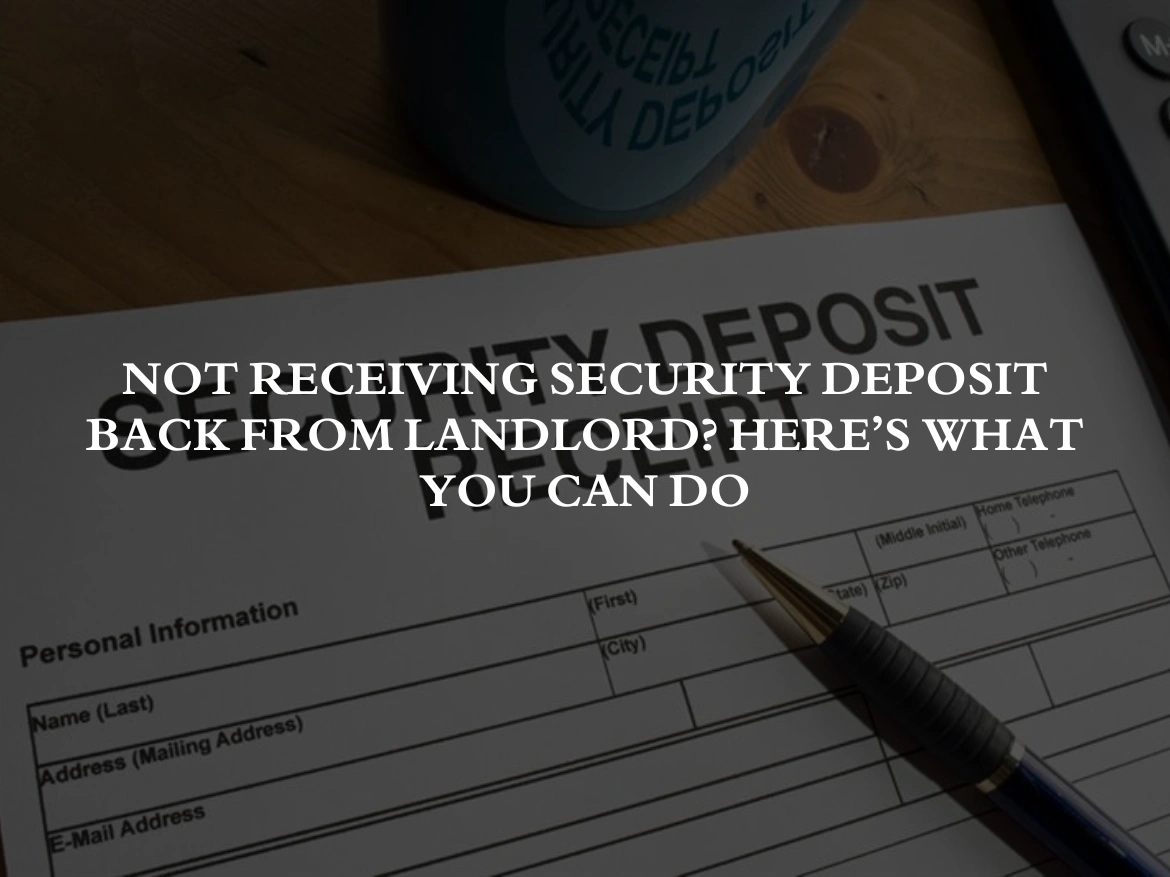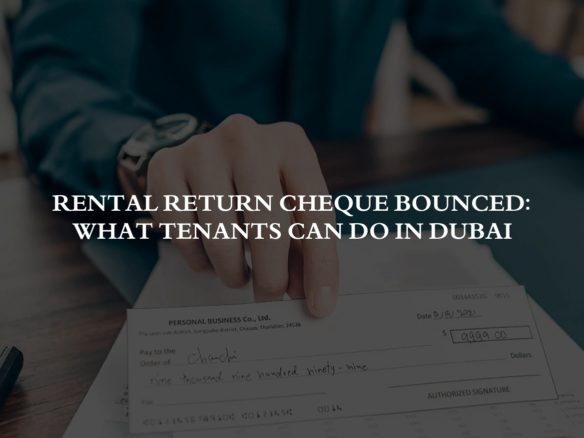Table of Contents
Even though it’s exciting to move into a new home in Dubai, not getting your security deposit back can leave you feeling down. In Dubai’s fast paced rental market, it’s important to know how to keep your security deposit safe. You won’t have to deal with any problems when you get your security deposit back from the landlord after reading this guide.
Understanding Security Deposits Under Dubai Rental Law
Dubai’s rental framework is clear regarding security deposits. According to the Dubai Rental Law, landlords can collect a security deposit when you sign your lease. However, this deposit isn’t just money they can keep. It serves one specific purpose: covering any necessary repairs from damage beyond normal wear and tear when your tenancy ends.
Here’s what the law guarantees you:
The landlord must return your full security deposit, or whatever remains after legitimate deductions, when you move out. This is a legal requirement, not a courtesy.
But there’s a catch. Even though the law says you can get your deposit back, it doesn’t say what kind of damage is allowed or how much can be taken off for different types of damage. Disputes often happen in this grey area, which makes some renters angry when they get less money back than they expected.
The good news? If you do the right things and keep the right paperwork, you can greatly improve your chances of getting your full deposit back.
What If Your Landlord Does Not Return Your Security Deposit?
Before we dive into prevention strategies, let’s address what happens if things go wrong. If your landlord refuses to return your security deposit or makes deductions you believe are unfair, you have legal recourse through the Dubai Rental Dispute Centre (RDC) at RERA.
Filing a case costs 3.5% of your annual rent (with a minimum fee of AED 500 and a maximum of AED 20,000), plus an administrative charge of AED 320. The Arbitration Department typically tries to resolve disputes within 15 days, though the full legal process can take up to 30 days for a ruling. However, going through legal action should be your last resort.
It will consume your time and involve multiple court visits. The smarter approach is to prevent disputes from happening in the first place.
How to Make Your Landlord Return Your Full Security Deposit
Read Your Tenancy Contract Thoroughly
Your tenancy contract is your protection. Before signing anything, read every clause carefully, especially those related to the security deposit. The contract typically requires you to return the property in the “same condition” you received it, accounting for normal wear and tear.
Follow these steps before moving in:
- Carefully check the property and write down any broken or damaged things you find. Write down these problems and tell your owner about them right away.
- Ask your landlord to clarify what they consider “wear and tear.” Getting this in writing prevents misunderstandings later.
- Request your landlord for permission before making any modifications to the property, even minor ones like hanging pictures
- Each time you renew your contract, verify that the security deposit clauses remain unchanged.
Document Everything with Check-In and Check-Out Reports
Property managers and renters with a lot of experience use check-in and check-out reports because they work. These reports, which should include photos and videos, show exactly how the property is when you move in and when you leave.
Ask your landlord to do both checks while you are there. As you go through each room with your partner, make notes on the state of the walls, floors, lights, appliances, and furniture. Take thorough pictures of everything, including close-ups of any damage that is already there.
When you move out, repeat this process. Having photographic evidence from both dates makes it nearly impossible for landlords to claim you damaged something that was already broken.
Essential Tips for Receiving Your Security Deposit Back
Restore the Property to Move In Condition
Before moving out, check if there is any damage you may have caused during your tenancy. You can fix those damages, like fixing walls that have scratches or faded spots by painting them over. Fill holes from picture hangs or wall-mounted items. Clean thoroughly, paying special attention to kitchens and bathrooms. Fix or replace anything you broke.
This may cost you a little bit, but far less than what a landlord might deduct if you leave these issues unaddressed.
Keep Detailed Records of Your Expenses
Maintain a file of all property-related expenses. This includes things like:
Receipts for any repairs you paid for yourself, maintenance work you performed, and improvements you made to the property.
This documentation serves two purposes. First, it reminds you of what you’ve already fixed. Second, if disputes arise, you have proof of your investment in maintaining the property.
Clear All Outstanding Bills
Nothing frustrates landlords more than inheriting a tenant’s unpaid bills. Before you move out, settle all utility bills, including electricity, water, telephone, and internet. Request final bills and payment confirmations. Eliminating this issue by clearing everything before your move-out date.
Consider Handing Keys to RERA
If you have serious concerns that your landlord might not return your deposit, you can hand your keys directly to RERA on your move-out date. RERA will hold the keys until your landlord pays your security deposit, providing you with an extra layer of protection.
Need a More information About It?
Our agents will help you explore premium options tailored to your lifestyle, location preferences, and investment goals.
Final Thoughts
It doesn’t have to be hard to receive security deposit back from landlord. Stepping up from the moment you sign your lease is important. Keep good records of everything, take care of the property, talk to your owner clearly, and know your legal rights.
Remember that most landlords in Dubai’s rental market are professional and fair. By following these rules, you are making both the move in and move out process smoother for everyone involved.
FAQs
If you want to make a case with Dubai’s Rental Dispute Center, you will need to pay 3.5% of your annual rent, which is between 500 and 20,000 AED. There is also a 320 AED administrative fee. If your landlord delays beyond reasonable timeframes, you can file a complaint with RERA’s Rental Dispute Centre.
While Dubai rental law doesn’t specify an exact deadline, landlords typically return security deposits within 30 days after you vacate the property. However, this timeframe can vary depending on property inspections and final bill settlements. If your landlord delays beyond reasonable timeframes, you can file a complaint with RERA’s Rental Dispute Centre.
Complete this checklist before inspection:
- Fix all the damage you made (fill in holes, smooth out scratches).
- Thoroughly clean the whole house, focusing on the kitchen and bathrooms
- Fix or replace anything that is broken.
- Pay off all of your bills and get clearance papers.
- Take clear pictures and movies of each room.
- Make sure that all of the tools are working correctly.





Join The Discussion